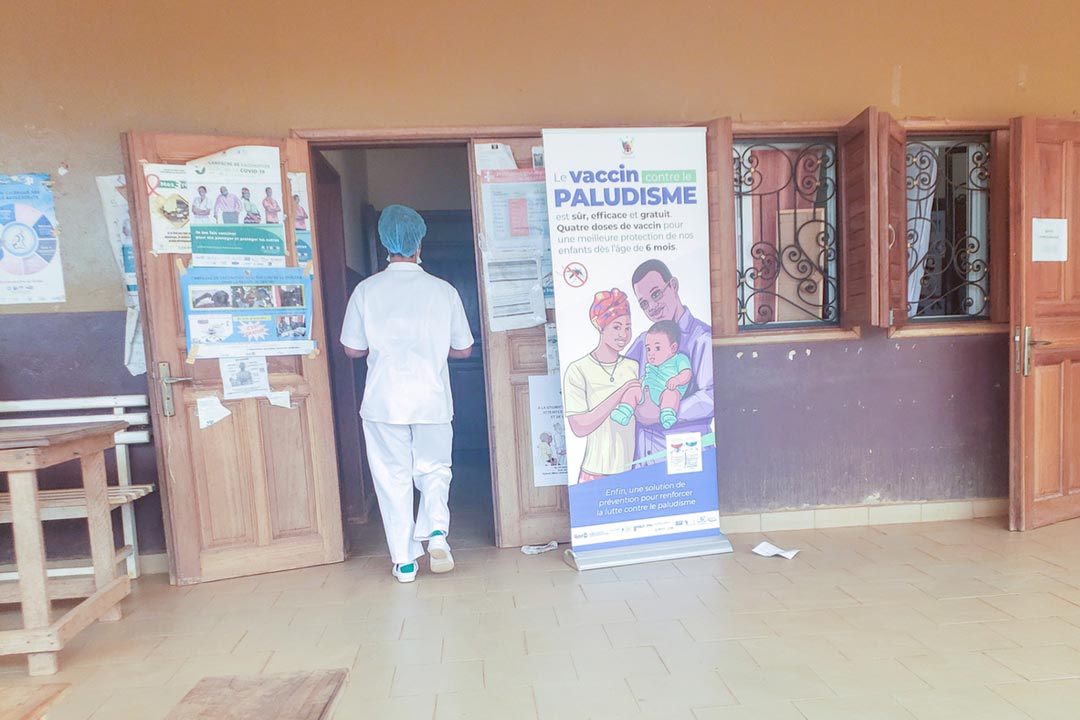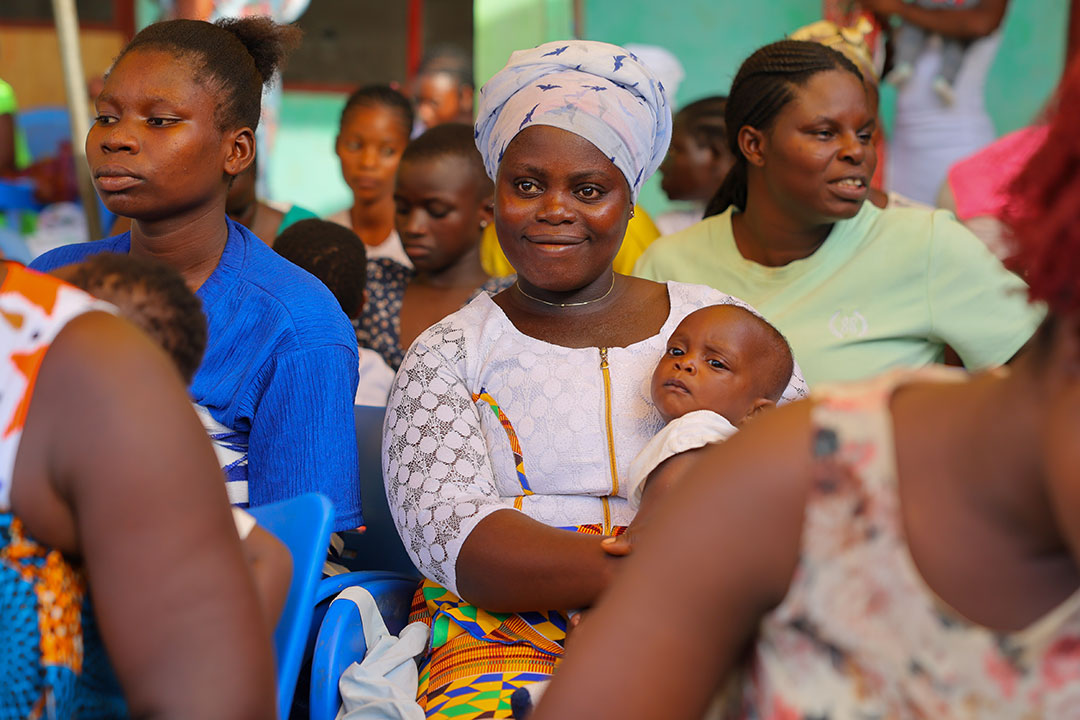Meet the medic championing Cameroon’s fight against viral hepatitis
Scaling up childhood immunisation against hepatitis B is a “pressing need” in Cameroon, where one in ten people carries the infection, urges Dr Ndi Norah Nyah.
- 26 July 2024
- 5 min read
- by Akem Olives Nkwain

Widespread scarcity of testing, pervasive ignorance about the disease, and prohibitive costs associated with screening, diagnosis, and care are some of barriers to eliminating hepatitis B in Cameroon, says Dr Ndi Norah Nyah, who intends to help lead the charge against the viral disease.
Hepatitis B, a viral infection that quietly assaults the liver, is a silent epidemic that affects millions worldwide. The World Health Organization reports that in 2019, 296 million people were living with chronic hepatitis B infection, leading to 1.5 million new infections annually and contributing to an estimated 820,000 deaths each year. In Cameroon alone, the prevalence stands at a staggering 11.2%.
“According to the most recent epidemiology studies in Cameroon, one out of every ten people carries the infection, making it a huge public health concern,” says Dr Ndi.

That passion was ignited some eight years ago. “In 2016, during my fourth year of Internal Medicine Residency Training, I undertook a research project focusing on chronic viral hepatitis B. This decision was influenced by the significant number of patients presenting with chronic viral hepatitis in our hospital, who were not receiving adequate care,” she says.
“According to the most recent epidemiology studies in Cameroon, one out of every ten people carries the infection, making it a huge public health concern.”
- Dr Ndi Norah Nyah
Pervasive ignorance about the disease
“Hepatitis B is commonly diagnosed at various entry points in our hospital, including general consultations, antenatal clinics and blood donors. Our statistics show that about 8% of the patients we see test positive for hepatitis B. Sadly, many of these patients [who test positive], often demonstrate a lack of awareness about chronic viral hepatitis when we inquire about their knowledge.”
In fact, the majority of Cameroon’s population is not well-informed about this life-threatening medical condition, observes Dr Ndi.
This spotlights the need for more public awareness and education. “At our hospital, we include discussions about hepatitis B in our health talks across different units. We also encourage our patients to spread the message to their communities. As more people become informed about hepatitis B, they will be more likely to seek out testing.”
Education is cardinal in the fight against hepatitis B. The lack of symptoms in the early and chronic stages of the disease, coupled with widespread unawareness, leads many people to neglect their health. It is imperative to amplify educational efforts, particularly among the youth. Integrating comprehensive health discussions on hepatitis B into the curricula of primary and secondary schools could significantly reduce transmission rates and instil a lifelong awareness of the disease and its prevention.
Have you read?
Scaling up testing is a dire need
Testing is a vital cornerstone for combatting hepatitis B. It is the gateway to identifying those at risk of chronic illness and its complications, and ensuring they receive the necessary counselling, monitoring, and treatment to avert the progression to such life-threatening conditions as liver failure, cirrhosi, and hepatocellular carcinoma.
Despite its pivotal role in the fight against the disease, screening initiatives in the country have been confined to blood donations and administrative mandates. Dr Ndi says, “That has to change.” Everyone needs to know their hepatitis B status by getting screened, she adds.
Policymakers, on the other hand, must expand screening initiatives beyond the confines of blood donations and administrative obligations. This will in turn promote a culture of regular testing. “Without these measures, eliminating viral hepatitis B by 2030 would be extremely challenging,” says Dr Ndi.
Encouraging vaccination is the way to go
According to Dr Ndi, childhood immunisation is another essential measure for eliminating hepatitis B. “As of now, there is a pressing need to include the birth dose of the hepatitis B vaccine in Cameroon’s Expanded Immunization Program (EPI). It has been proven that doing so and continuing with at least three additional doses in infancy is the best strategy to fight Hepatitis B infection and move down the road of eliminating it by 2030, so all newborns need to receive the birth dose of hepatitis B vaccine,” she says.
In an encouraging development, Gavi has announced support for countries to administer the hepB birth dose. Ethiopia and Sudan were the first countries to request support from Gavi, submitting their applications in July 2024. More countries, including Cameroon, are expected to apply this year, with roll-out expected in the latter half of 2025.

Besides vaccination, Dr Ndi believes that timely care for those who test positive is the next step towards eliminating hepatitis B. “if you have a hepatitis B infection, it's important to stay in close contact with your doctor and be evaluated for treatment. Timely treatment can reduce the chances of developing complications and prevent the transmission of the infection to others. [Hence,] our policymakers need to understand the significant burden of hepatitis B and allocate the necessary resources to fight it.”
Scrapping prohibitive associated costs
The cost of treatment for hepatitis B – including medications like tenofovir or entecavir – is beyond the reach of many.
In Cameroon, the cumulative cost of tests required to diagnose and monitor hepatitis B can amount to 59,000 Central African francs (US$ 98), a sum that is exorbitant for the majority of Cameroonians, who rely on out-of-pocket health care payments.
This financial strain is exacerbated for those who must travel to regional capitals for confirmatory tests and treatment in government-designated treatment centres.
Consequently, the government should seek to subsidise the cost of the test further, to get more people screened, emphasises Dr Ndi.
By and large, boosting testing, stirring education, and overcoming the cost barriers can thwart this silent killer, thereby eradicating hepatitis B.








